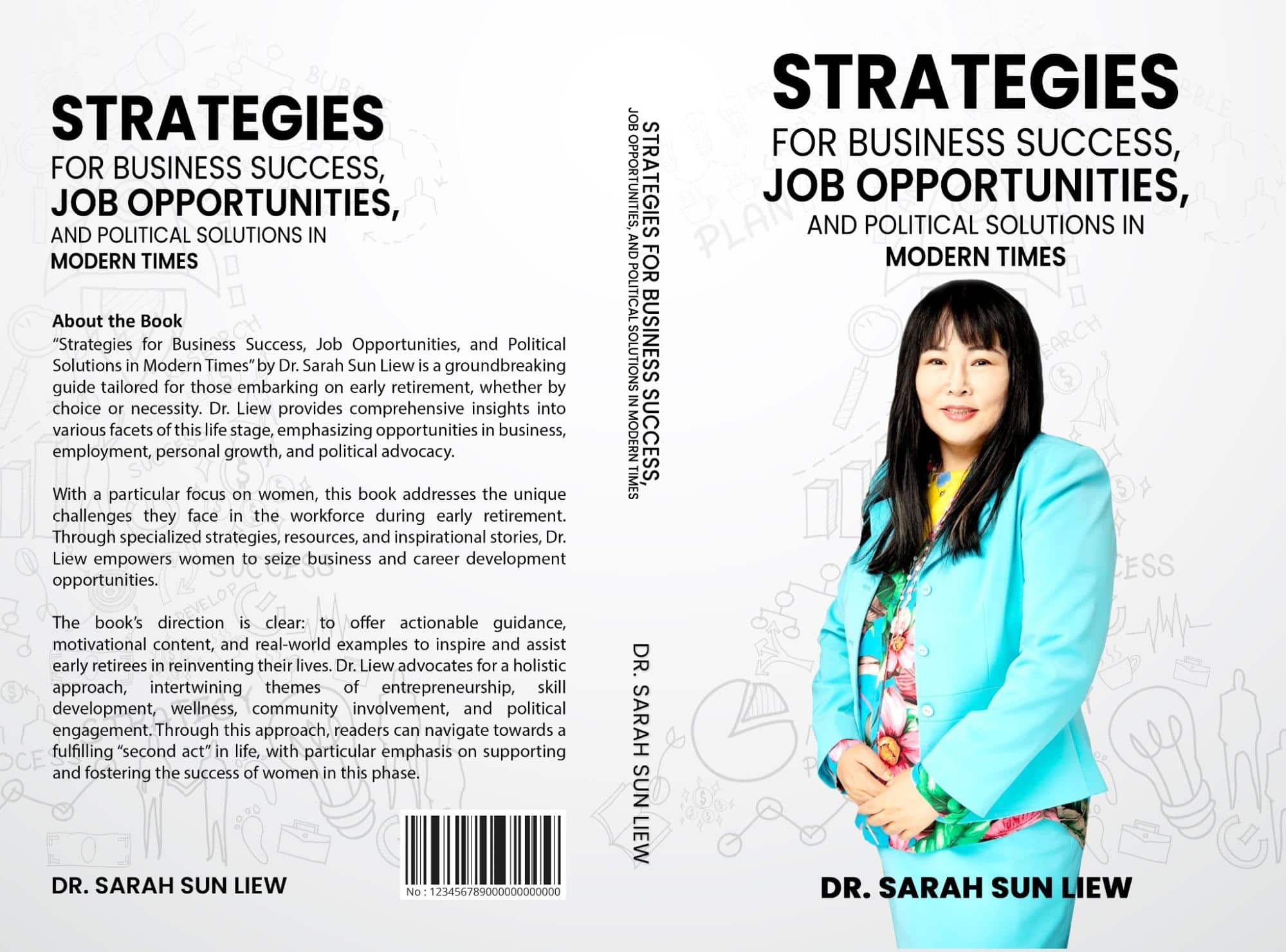In today’s rapidly evolving business landscape, trust is the cornerstone of effective leadership. Dr. Sarah Sun Liew’s book, The Future-Forward CEO: Embracing Change in the Digital Age, explores how modern leaders can cultivate trust through influence rather than relying solely on authority. Building trust through influence creates a collaborative and supportive work environment, fostering stronger relationships and driving team success. This article delves into strategies for building trust through influence, focusing on leading by example, active listening, and empathetic communication.
The Importance of Trust in Leadership
Trust is essential for creating a positive and productive work environment. Leaders who earn the trust of their team members are more likely to inspire commitment, encourage open communication, and achieve higher levels of performance. Trust fosters a culture of mutual respect and collaboration, where team members feel valued and are more willing to engage and contribute their best efforts.
According to Dr. Liew, trust in leadership is not just about being reliable or consistent; it’s also about how leaders influence and connect with their teams. Unlike authority, which can demand compliance, influence relies on personal qualities and behaviors that build trust organically. Effective leaders use influence to guide, inspire, and support their teams, creating an environment where trust can thrive.

Leading by Example
One of the most powerful ways to build trust is by leading by example. When leaders demonstrate the behaviors and values they expect from their team members, they set a standard for others to follow. This approach not only aligns with Dr. Liew’s insights but also establishes credibility and fosters trust.
- Demonstrating Integrity: Leaders who consistently act with integrity build trust by showing that their words and actions are aligned. When team members observe that their leader adheres to ethical standards and follows through on commitments, they are more likely to trust and respect them.
- Exemplifying Work Ethic: A strong work ethic is another critical aspect of leading by example. Leaders who show dedication, diligence, and a commitment to their responsibilities inspire their team members to adopt similar attitudes. This dedication fosters trust as team members see that their leader is invested in the success of the organization.
- Modeling Accountability: Accountability is essential for building trust. Leaders who take responsibility for their actions and decisions, and who admit mistakes openly, demonstrate humility and transparency. This behavior encourages team members to be honest and accountable, further strengthening the trust within the team.
Active Listening
Active listening is a key strategy for building trust through influence. It involves fully engaging with team members, understanding their perspectives, and responding thoughtfully. Dr. Liew emphasizes that active listening fosters open communication and shows that leaders value their team members’ input.
- Engaging in Meaningful Conversations: Leaders who practice active listening engage in conversations that go beyond surface-level interactions. They ask open-ended questions, seek feedback, and show genuine interest in their team members’ thoughts and feelings. This approach helps to build rapport and trust.
- Providing Validation and Support: Active listening also involves acknowledging and validating team members’ concerns and ideas. When leaders show that they understand and value their input, it creates a sense of respect and trust. This validation helps team members feel heard and appreciated.
- Responding with Empathy: Empathy is a crucial component of active listening. Leaders who respond with empathy demonstrate that they care about their team members’ experiences and emotions. This empathetic approach helps to build trust and strengthen relationships, as team members feel supported and understood.
Empathetic Communication
Empathetic communication is another essential strategy for building trust through influence. It involves understanding and addressing the emotional needs of team members while effectively communicating expectations and goals.
- Understanding Emotional Needs: Effective leaders are attuned to the emotional climate of their team. They recognize when team members are experiencing challenges or stress and offer support and encouragement. By acknowledging and addressing these emotional needs, leaders build trust and create a more supportive work environment.
- Tailoring Communication: Empathetic communication also involves tailoring messages to resonate with team members’ individual needs and preferences. Leaders who adapt their communication style to suit their audience are more likely to connect with their team members and build trust.
- Fostering Open Dialogue: Encouraging open dialogue is a key aspect of empathetic communication. Leaders who create an environment where team members feel comfortable sharing their thoughts and concerns foster trust and collaboration. This openness helps to address issues proactively and strengthen team relationships.

Building Collaborative Relationships
Trust is further enhanced through collaborative relationships. Dr. Liew underscores the importance of building strong interpersonal connections with team members. Leaders who invest time and effort into developing these relationships create a sense of camaraderie and mutual respect.
- Creating Opportunities for Collaboration: Leaders who encourage teamwork and collaboration help to build trust by fostering a sense of shared purpose and mutual support. Collaborative projects and team-building activities create opportunities for team members to work together and develop stronger relationships.
- Recognizing and Celebrating Achievements: Acknowledging and celebrating individual and team achievements is another way to build trust. Leaders who recognize their team members’ contributions and successes demonstrate appreciation and support, reinforcing trust and motivation.
- Providing Growth and Development Opportunities: Investing in team members’ growth and development shows that leaders value their potential and are committed to their success. This investment builds trust by demonstrating that leaders are genuinely interested in their team members’ career progression.
Conclusion

Building trust through influence is a critical aspect of effective leadership, as highlighted in Dr. Sarah Sun Liew’s The Future-Forward CEO: Embracing Change in the Digital Age. By leading by example, practicing active listening, and engaging in empathetic communication, leaders can foster a collaborative and supportive work environment where trust thrives. These strategies not only enhance team relationships but also drive higher levels of engagement and performance.
In a world where traditional authority alone is no longer sufficient, influence becomes the key to unlocking the full potential of teams and organizations. Leaders who master the art of influence can create a positive and dynamic work culture, guiding their teams to achieve exceptional results and navigate the complexities of the modern business landscape.
For those interested in delving deeper into Dr. Sarah Sun Liew’s innovative approaches:
– Explore her internationally recognized author profile: (wikitia.com/wiki/Dr._Sarah_Sun_Liew).
– Contact directly at (424) 343 7025 or (424) 777 6461.
– Learn more via [www.sarahsenator.org](http://www.sarahsenator.org) or [drsarahliewforcongress.com](http://drsarahliewforcongress.com).
– Follow on social platforms: Facebook (@sarahsun.liew), Twitter (@Sarahliew7), YouTube (@dr.sarahsunliewforcongress884), Instagram (@drliewsenate), LinkedIn.
Published by: Holy Minoza






